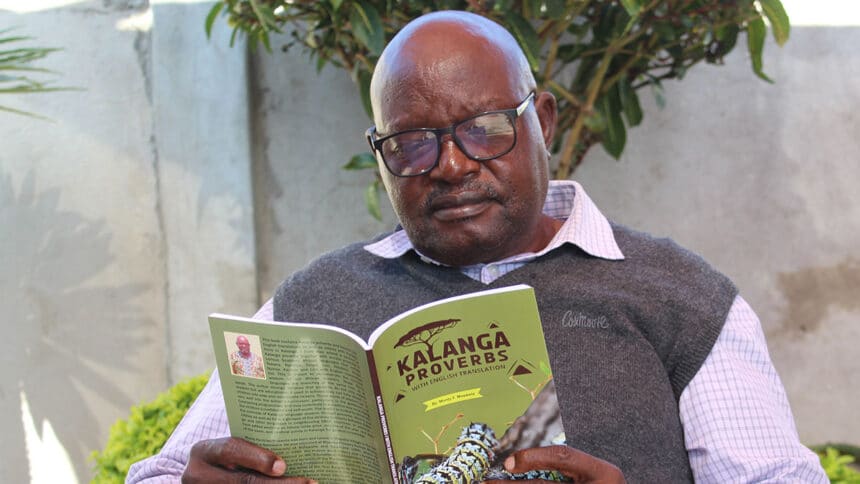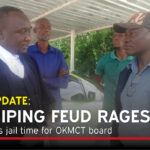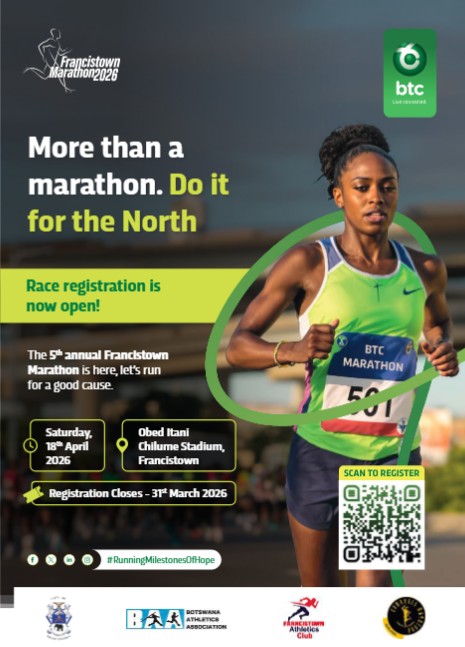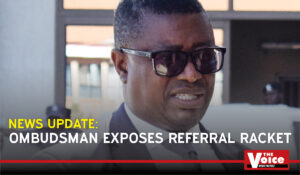Do you have a fart that can extinguish a fire, is your heart long, or perhaps you’ve been told ‘you have a liver’ or even ‘a lung’.
Such expressions might draw bemused looks from today’s youngsters, but mention these idioms in the vicinity of Kalanga elders, and you’re almost certainly guaranteed a knowing nod or two.
All feature in acclaimed poet, Monty Fanikiso Moswela’s latest work, ‘Kalanga Proverbs with English Translation’.
On a mission to revive iKalanga and promote a cause close to his heart, the Mapoka-born wordsmith has once again delved deep into the language and culture of his people.
As the title suggests, the 67-year-old’s new release focuses on Kalanga proverbs, which account for 51 of the book’s 82 pages and include direct translations into English as well as the actual meanings.
“From the feedback I got, young people will understand better in English. If I were to give the meanings in Kalanga, our people are not very fluent, reading and writing is a problem with us,” notes Moswela.
It is a source of great frustration to the Francistown-based author, whose previous books include ‘Milidzo Ye Ikalanga’ and ‘Domboshaba and other Poems’.
“Kalanga is not taught in schools. I wish it would be. Any linguist will tell you, if you take a language away from school, it’s surely going to die. It’s a crying scandal that people cannot be able to read their own language!”
Like all marginalised languages, Kalanga has been missing from the school curriculum since 1972, removed from the syllabus by Sir Seretse Khama and his government of the day in a bid to unify the country through Setswana.
Although he admits the intentions were good, Moswela describes the move as ‘a great tragedy’.
“Little did they know that they were actually suppressing other people’s culture. The concept of inclusivity was not taken seriously!”
Desperate to make a difference and help preserve the wisdom of the Bakalanga tribe, the retired Literature teacher is determined to breathe new life into his mother tongue.
“My belief is that when I write these Kalanga proverbs, I am contributing to the literature of Bakalanga, to their culture because language is culture, you can’t separate the two. Language carries culture, it brings out the way the people live.
“Not only do these proverbs convey wisdom they are educational too; if used in schools, they can help shape our children into wise and responsible citizens,” says Moswela, who has hope Kalanga and other languages will return to school one day.
On top of the 211 proverbs unpacked, the rich literary offering includes similar traditional sayings in numerous Southern African languages as well as several eye-opening idioms and riddles.
“In addition, I have added sections on lobola/bride price, months of the year, and days of the week, plus cardinal points, all in Kalanga for general knowledge,” reveals the 2007 Bessie Head Literature Award winner.
‘Kalanga Proverbs with English Translation’ is available at Clickwell in Francistown as well Botswana Book Centre in Gaborone, retailing for around P200. Alternatively, you can purchase a copy direct from the author on 71786515.
Three proverbs that caught Voice Entertainment’s eye
PROVERB: Tjimdzathula tjakazwithemba ipato tjikulu
LIT. TRANSLATION: One who swallows a morula fruit is sure of a big anus
MEANING: It discourages people from carrying stuff beyond their weight. When you do something, make sure you will finish it without any hitches
PROVERB: Tjimilo hatjitong’wa vula nlomo usang’wa
LIT. TRANSLATION: The nose cannot drink water before the mouth drinks
MEANING: Elders take precedence over youngsters. It emphasizes respect for elders in Africa society
PROVERB: Thema yausamusa hauto ziba malalo ayo
LIT. TRANSLATION: If you meet a rhinoceros on the run you do not know its hiding place
MEANING: If you meet a young maiden in the street and marry, you may not know her behavior. You should not be surprised when you discover later that you have married a thief and drunkard















